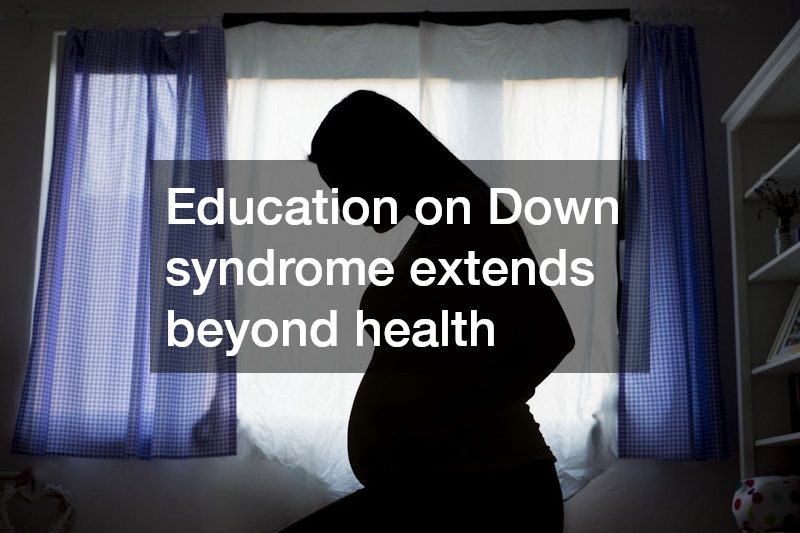Understanding Down syndrome is crucial not only from a medical perspective but also for promoting inclusivity, compassion, and support for individuals and families affected by the condition. As one of the most common chromosomal abnormalities, Down syndrome presents both unique challenges and remarkable strengths. Through awareness and education, society can better support those living with this genetic disorder, ensuring they are given the resources and respect needed to thrive. This essay explores the causes, diagnosis, emotional journey of parents, and essential healthcare considerations, aiming to provide a well-rounded perspective on what it truly means to understand Down syndrome.
Understanding Down Syndrome
Down syndrome is a genetic disorder caused by the presence of an extra chromosome 21. This condition affects approximately one in every 700 births globally.
It leads to a range of developmental and physical differences that vary greatly among individuals. Down syndrome is one of the most common chromosomal disorders and can impact cognitive ability, physical growth, and overall health. Knowledge and understanding of this condition are paramount for expecting parents to prepare themselves adequately.
Early diagnosis through genetic testing can provide valuable information. Pregnant women can opt for screenings such as the nuchal translucency test, cell-free DNA screening, or diagnostic tests like amniocentesis. These tests help in understanding the likelihood of their baby having Down syndrome. Although these methods can provide a high degree of accuracy, it’s important to acknowledge the emotional complexities that come with such decisions. Support from healthcare providers is crucial to manage expectations and prepare emotionally for any outcome.
It’s essential to recognize that Down syndrome is not solely defined by medical challenges. Many individuals with Down syndrome lead fulfilling lives with proper support and opportunities. Early intervention programs and continuous support can significantly enhance development and independence. Emphasizing strengths and potential rather than limitations helps foster a positive outlook for both the individual with Down syndrome and their family. Open communication and education are key components in supporting a loving and nurturing environment.
Emotional Journey for Parents
Learning about a prenatal Down syndrome diagnosis can be an emotional journey for expectant parents. It is normal for parents to experience a range of emotions, from shock and grief to acceptance and empowerment. Understanding and acknowledging these feelings are critical steps toward processing the news. Connecting with peers or professionals who have navigated similar experiences can provide comfort and insightful perspectives. These support networks help parents realize they are not alone, alleviating feelings of isolation.
Once the initial shock subsides, many parents find strength in knowledge and preparation. Counseling and educational resources play a significant role in navigating the emotional terrain of a Down syndrome pregnancy. Engaging with support groups, whether online or in-person, provides a safe space for parents to express their feelings. Parents often form life-long relationships with others who share similar experiences, further enriching their support network. These connections can be vital in building resilience and fostering a positive outlook on the journey ahead.
Open communication between partners is equally important in navigating this emotional journey. Discussing fears, hopes, and expectations ensures that both partners feel heard and supported. Jointly deciding on a plan of action can strengthen the partnership, as both work towards a common goal. Receiving a Down syndrome diagnosis can bring uncertainties, but it also often strengthens the familial bond. Partnership and solidarity become pivotal, guiding parents through the unique and rewarding experience of raising a child with Down syndrome.
Health Considerations and Care
Children born with Down syndrome might face a range of health issues, making attentive prenatal care essential. Common health concerns include congenital heart defects, respiratory issues, and hearing impairments. Regular check-ups and early intervention programs can help manage these conditions effectively. Proactive healthcare planning, including consultations with specialists, ensures comprehensive care. Parents must understand that early and consistent medical oversight is a cornerstone for supporting the health of their child with Down syndrome.
In addition to medical care, nutritional guidance and physical therapy are critical components of care. Many children with Down syndrome thrive with personalized plans that address dietary needs and physical activity. Specialized diets and regular exercise can promote health and aid in developmental milestones. Physical therapy sessions focus on enhancing motor skills, which are often delayed in children with Down syndrome. Such interventions empower children, fostering confidence and independence in their journey towards reaching their full potential.
Education on Down syndrome extends beyond health, encompassing educational and social aspects as well. Parents play a crucial role in advocating for inclusive education and equal opportunities for their children. Involving educators and therapists creates an integrated support system, catering to the individual needs of each child. Social inclusion and acceptance are fostered through active participation in community activities. By nurturing a supportive environment, children with Down syndrome can achieve a high quality of life, accomplishing many personal and educational milestones.
.




